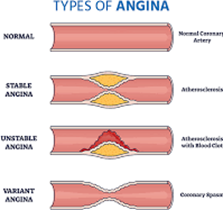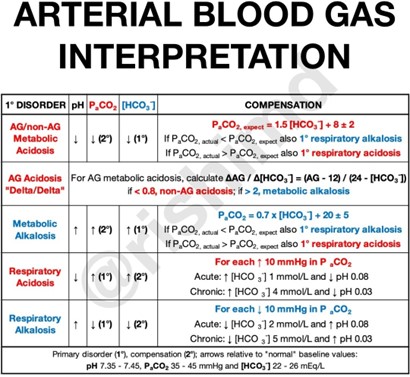During a Cardiac Stress test, a patient complains of chest pain while running The chest pain subsides when he stops running and is relaxed. The patient is diagnosed with Stable angina and is given education by the nurse. He understands the lack of muscles is causing stable angina during exercise.
Electrolytes
Oxygen
Potassium
Hemoglobin
The Correct Answer is B
During exercise, the heart has to work harder to pump blood and oxygen to the muscles. In patients with stable angina, there is a partial blockage of the coronary arteries, which reduces blood flow and oxygen delivery to the heart muscle. This lack of oxygen to the heart muscles causes chest pain or discomfort, which subsides when the patient stops exercising and is relaxed.
Therefore, it is important for the patient with stable angina to avoid activities that trigger chest pain, take prescribed medications, and make lifestyle modifications to manage their condition.

Nursing Test Bank
Naxlex Comprehensive Predictor Exams
Related Questions
Correct Answer is B
Explanation
Respiratory alkalosis is a condition in which the blood pH is elevated due to a decrease in the partial pressure of carbon dioxide (CO2) in the blood. This can occur when a person breathes too rapidly or deeply (hyperventilation), causing them to exhale too much CO2. In this option, the pH is elevated (normal range is 7.35-7.45), the CO2 is low (normal range is 35-45 mmHg), and the bicarbonate (HCO3) level is within the normal range (22-26 mEq/L), which are all consistent with respiratory alkalosis.

Correct Answer is A
Explanation
Pulse oximetry is a non-invasive method of monitoring the oxygen saturation level in the blood. A normal range for oxygen saturation is between 95% and 100%. An oxygen saturation level of 89% indicates hypoxemia, which is a serious condition that can lead to tissue damage, organ failure, and even death if left untreated.
Therefore, the priority nursing action is to perform a respiratory assessment to determine the cause of the hypoxemia. This should include assessing the client's airway patency, breathing patern, lung sounds, and oxygen therapy if the client is already receiving it. The nurse should also observe for any signs of respiratory distress such as cyanosis, accessory muscle use, or difficulty breathing.

While it is important to document hypoxemia and report it to the healthcare provider, the priority at this time is to assess and intervene promptly to prevent further deterioration of the client's condition. Checking the placement of the pulse oximeter may be necessary if the reading is unreliable, but it is not the priority in this scenario.
Whether you are a student looking to ace your exams or a practicing nurse seeking to enhance your expertise , our nursing education contents will empower you with the confidence and competence to make a difference in the lives of patients and become a respected leader in the healthcare field.
Visit Naxlex, invest in your future and unlock endless possibilities with our unparalleled nursing education contents today
Report Wrong Answer on the Current Question
Do you disagree with the answer? If yes, what is your expected answer? Explain.
Kindly be descriptive with the issue you are facing.
